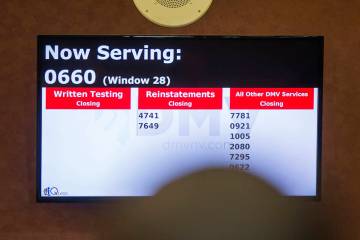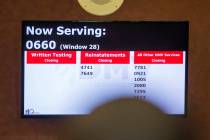EDITORIAL: Democrats pushing large increase in Social Security taxes
Prominent Democrat presidential candidates, such as Sen. Kamala Harris, argue the country can afford “Medicare for All” without middle-class tax hikes. Anyone gullible enough to believe that should consider the party’s plan for Social Security.
Social Security is running out of money. The Social Security Administration’s projections show its trust fund will be empty by 2035, which would necessitate a 25 percent cut in benefits. Given the electoral uproar that would ensue, no one expects this to happen. But the longer Congress dithers, the more drastic — in tax hikes, benefit reductions or a combination of both — the solution will need to be.
Republicans have tried. In 2005, then-President George W. Bush’s ambitious Social Security reforms flamed out after Democrats demagogued the issue with senior voters. That cynical and unproductive pattern continued after the 2016 election, when a Republican congressman put forward a plan to reduce benefits for wealthier retirees and raise the retirement age. Rep. Richard Neal, D-Mass., said the proposal was evidence Republicans were putting Social Security on the “chopping block.”
President Donald Trump is a notable and unfortunate exception to these reform efforts.
Democrats love to criticize GOP proposals to save the nation’s financially foundering entitlement programs. It’s harder to come up with a solution. To their credit, though, House Democrats have put forward the Social Security 2100 Act. Nevada Reps. Dina Titus and Steven Horsford are among the bill’s 210 co-sponsors. The bill would increase benefits by around 3 percent and increase the program’s revenue stream.
How? By raising taxes on everyone — the rich, the middle class and low-wage workers.
The payroll tax is 12.4 percent. Employers and employees each pay half. This bill raises the rate by 0.1 percentage point a year, topping out at 14.8 percent in 2042.
An employee who makes $40,000 a year currently pays $2,480 a year toward Social Security. The employer matches that amount, bringing the yearly tax bill to almost $5,000. Under this bill, that total contribution would eventually increase to just under $6,000 a year, the equivalent of a $1,000 pay cut once the top tax rate goes into effect.
Turns out giant entitlement programs need ever-more tax revenue to keep up with their spending obligations. The Social Security payroll tax began at just 2 percent, with promises that it would never rise above 6 percent. Democrats now want to boost that rate to 14.8 percent — a move that will hit low-income workers the hardest. Tax policy no doubt must be a part of any effort to shore up Social Security. But a plan that focuses solely on higher taxes and fails to address the fundamental structural deficiencies of a program that relies on current workers to pay retiree benefits is nothing more than a Band-Aid.
It’s easy to predict that Medicare for All would require a massive middle-class tax hike. Just look at the Democratic plan to shore up Social Security.























